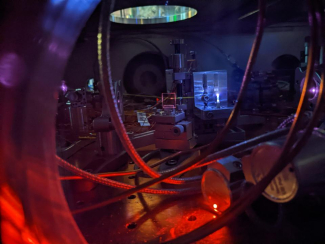JILA and NIST Fellow and University of Colorado Boulder Physics professor Jun Ye and his research team were recently featured in The Washington Post for a groundbreaking achievement in nuclear clock technology. This advancement brings humanity closer to a new era in timekeeping, with implications that extend from redefining time standards to unlocking new scientific discoveries. Unlike traditional atomic clocks, which rely on electron transitions, nuclear clocks operate based on transitions within an atom’s nucleus, making them less susceptible to environmental interference and capable of achieving unprecedented levels of precision. Ye’s nuclear clock could potentially push the boundaries of time measurement, setting a new global standard for accuracy.
Beyond its direct applications, this nuclear clock breakthrough holds the potential for transformative impacts across fields such as fundamental physics, navigation, and even the study of gravity and spacetime. The increased precision could enhance GPS technology, improve the synchronization of global communication systems, and deepen our understanding of the universe's most fundamental forces. The Washington Post article highlights how this pioneering work by Ye and his team at JILA represents not only a technological feat but also a profound leap in our ability to explore and quantify the mysteries of time itself.
Written by Kenna Hughes-Castleberry, JILA Science Communicator





